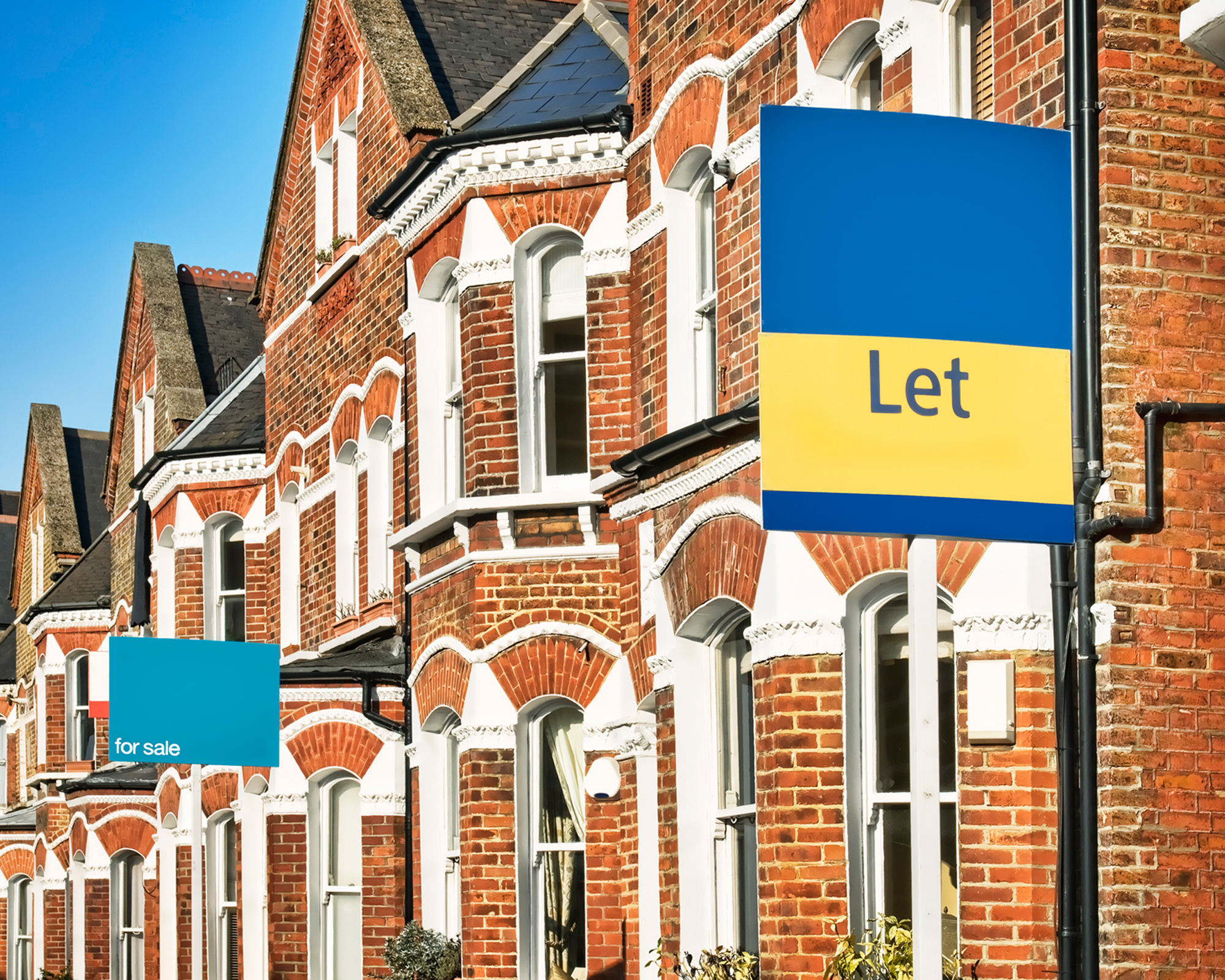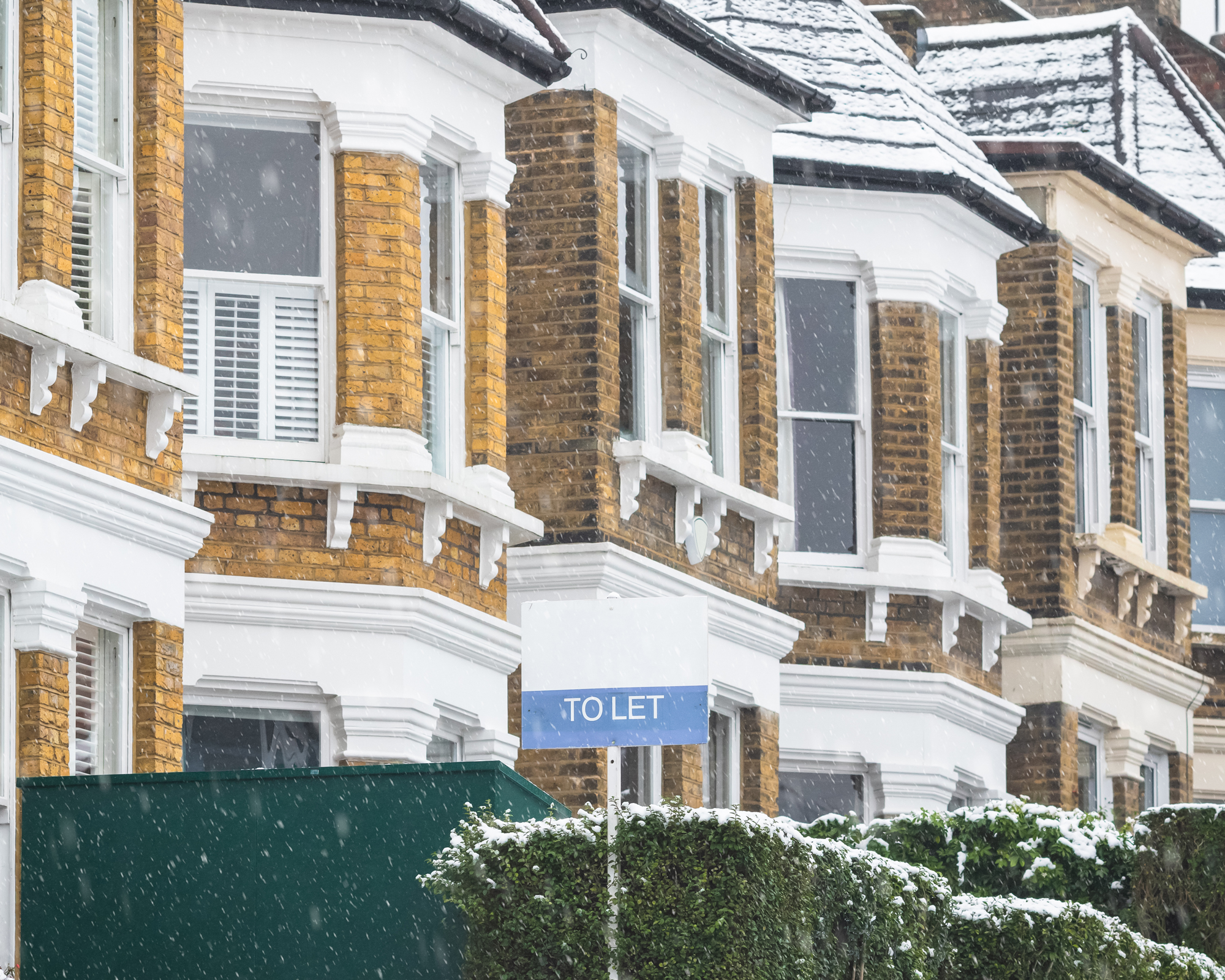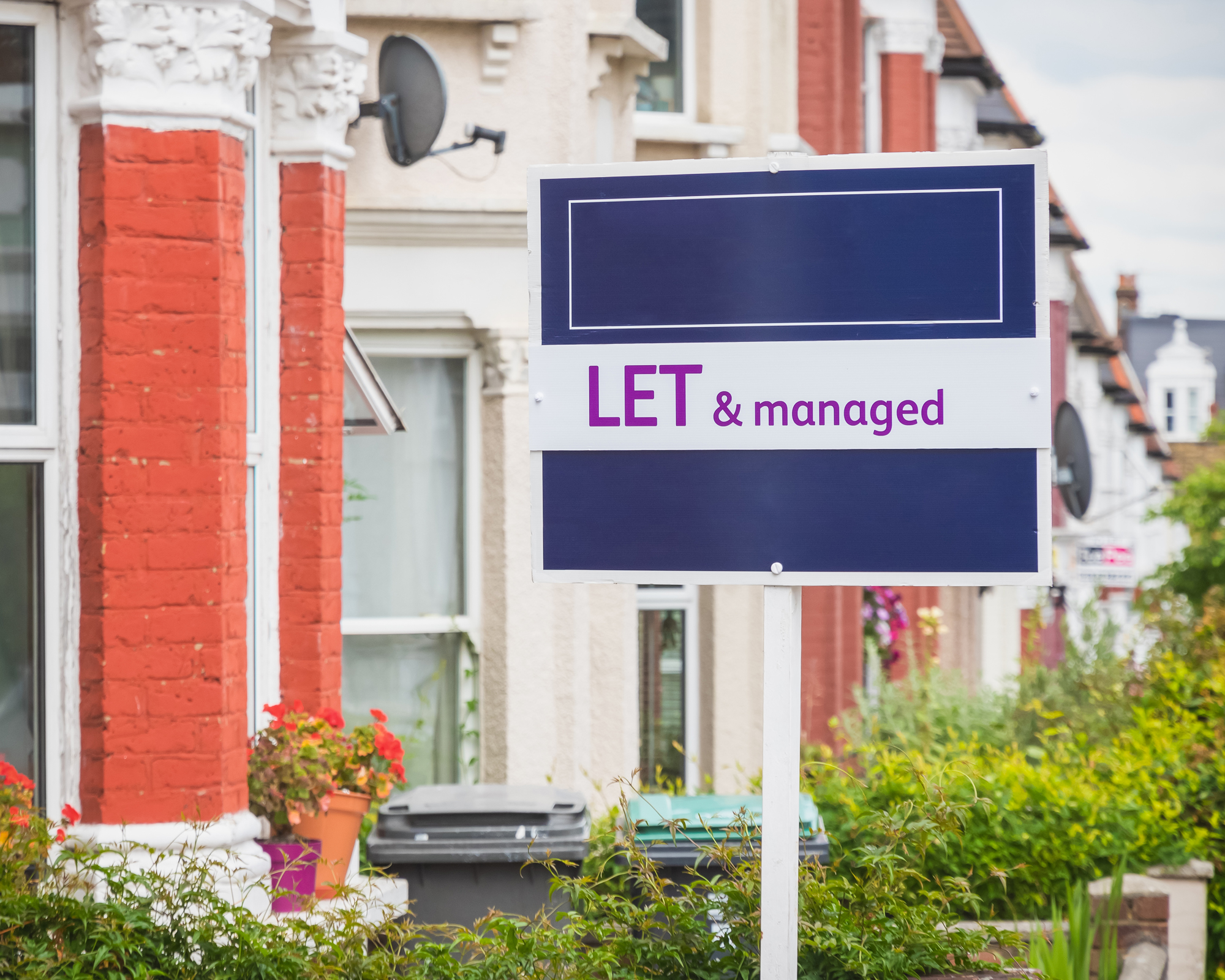The big guide to renting: a complete 20-step checklist for a breezy tenancy
New to renting? Follow our hassle-free, step-by-step how to rent guide to find the right home
Anna K. Cottrell

Looking to rent an apartment or house? Renting is a fact of life for a huge number of us, with many people now expecting to rent for life, whether through choice or being unable to buy a home. The rental market is fast-paced and requires you to be able to make quick, well-informed decisions.
So, in order to choose a property you'll be happy living in — and, most importantly, staying in — arm yourself with the knowledge you need to take you through all the stages of the renting process. As long as you've avoided all these rental red flags, you're in the clear!
From looking for and touring an apartment to contracts and disputes, this property expert-led advice will help you find your dream rented home quickly and efficiently.
1. Choose your location
You may already have a pretty good idea of where you want to live, but if you’re flexible on location, consider what your priorities are. Is it important to be near family and friends, have a speedy commute to work, or a short walk to a train station or bus stop? Do you want shops and cafes on the doorstep, or would you prefer somewhere quiet to come back to at the end of the day?
Don’t feel forced to stay in your current neighborhood just for the sake of it, as by broadening your horizons you may well discover that another suits your needs and lifestyle much better.
2. Have all your paperwork ready
There's no denying that the rental market is fast-paced, and you'll need to learn to move quickly. If you like a flat or house you've just viewed, you may well need to make a move to start the lease process that day. So, Amy Mueller of Apartment Advisorrecommends making sure 'you have all of your paperwork in order before you even start inquiring on properties. This should include, as a bare minimum, your bank statements for the last three months and a letter of reference from your previous landlord. If you've never rented before, you likely will need your employer or university to referee for you.

3. Start your search
Once you’ve pinpointed your desired location, worked out your budget, and decided how many bedrooms you want, you’re ready to kick off your property search. Big property portals such as Zoopla are your best bet as they are updated almost every day. However, if you have a particular area in mind, it's a very good idea to register with a local estate agent. They may well be able to offer you a rental that hasn't yet gone online but matches your criteria, or get in touch with their pool of landlords for something suitable.
Get small space home decor ideas, celeb inspiration, DIY tips and more, straight to your inbox!
4. Know what you can afford
This may sound obvious, but knowing what you can actually afford in rent is crucial if you want to save yourself the time and effort of viewing apartments or homes you won't comfortably be able to afford. Zoopla in particular, as well as other property search engines, will offer you a rental calculator that shows you how much you will actually be paying per month once all bills, including council tax and energy, have been added.
Also, be aware that negotiating the price of a rental is completely normal if there is a good reason for it. For example, if the landlord is in a hurry to find a tenant and you're prepared to forego that paint job in the living room, you may well be able to negotiate a lower rent.
5. Know what a fair rental price is
Do your homework! Mueller recommends researching your local rental market so that 'you know what is “fair” rent for the unit size, location and amenities offered.' Beware of rentals that are either significantly below the 'fair' price for your area as there's likely something wrong with the rental. Conversely, don't bother with an unrealistically high-priced rental as someone who is trying to charge an unfair amount on a rental is highly unlikely to be a good landlord.
6. Check if there are any extra fees
Be aware that depending on the type of property you're renting in there may be extra monthly fees. You need to be especially aware of this if you are moving into a serviced apartment block (e.g. there's a porter and/or cleaner) as it will almost certainly come with extra fees.
7. Be aware of credit score checks
Estate agents do also increasingly check credit scores, but some still rely on bank statements to check that you have enough earnings coming in to cover the rent.
However, just because landlords need to know your credit score doesn't mean that you have to harm yours by applying for a rental. Ask the estate agent whether they'll be performing a hard or a soft credit check – a soft credit check will not harm your credit score.
8. Recognise a good estate agent
- Word of mouth – or, these days, online reviews – is the best recommendation. There are websites such as the National Approved Letting Scheme or ARLA. Always check the relevant website to make sure that membership hasn’t lapsed.
- In the UK, from the 1st June 2019, an estate agent can only include a refundable holding deposit of one week's rent, and future fees for early contract termination, late rent payment, or loss of keys. Any agent that is still asking for other fees is breaking the law.
- Avoid agents like the plague who want to charge you for property details, are poorly organized, and ask for money upfront.
- Find out what to ask a letting agent about a property you are interested in before you proceed.
9. Seek out good private landlords
Leonard Ang, the CEO of iProperty Management, advises renters to 'investigate your landlord or property management company as much as you can beforehand. They generally treat their tenants consistently, meaning that if there are problems, there will be stories about it if you know where to look.'
If you are in the UK, there is an Accreditation Network for landlords – it is not mandatory, but if your landlord is registered, it's a very good sign. Review websites such as Rate Your Landlord are also invaluable.
10. Weigh up furnished vs unfurnished rentals
Whether you go for a furnished or unfurnished property is a matter of personal preference and convenience. A furnished home will suit you if you don’t have furniture of your own, and will save you the time, hassle and expense of sourcing and buying it.
On the downside, it might be slightly pricier as the landlord will have to pay to kit it out, and your deposit may be higher. Unfurnished is ideal if you already have your own stuff, and you won’t be liable for wear, tear and damage for items belonging to the landlord. It will also leave you free to personalise your new pad to your own taste.
11. Keep your eyes peeled during viewings
- Arrange to view a rental property for the first time during daylight hours, when any flaws are more apparent, and always tell someone where you’re going.
- Check that the décor’s in decent condition, ask exactly what’s included if the property is furnished, and make sure that the heating, lights and taps work and windows open.
- Assess room sizes, layout and amount of light coming in, and whether there’s much noise from neighbours or traffic.
- If the current tenants are in, find out what they like about their home, and whether any issues or repairs have been dealt with promptly.
- Check the water pressure! You don't want to be moving into a property with a weak shower.
- Measure doorways and rooms to get an idea of whether your furniture will fit in the first instance, without damaging walls or your belongings.
12. Have a Q&A with your landlord pre-signing contracts
It's very important to know the questions to ask a landlord before you sign your rental contract to avoid misunderstandings and problems later on. Jonathan Faccone, a full-time real estate investor and the Managing Member of Halo Homebuyers, highly recommends asking ' detailed questions from the beginning like what utilities are covered in the rent, who is responsible for maintaining the lawn, and shoveling the snow. These details should be mentioned in the lease to
prevent miscommunications and potential disputes.'
While your landlord is always responsible for essential home repairs that keep the property safe and appropriate for use, you will want to know how non-essential repairs are managed and by whom. If the place you're moving into needs repairs before you move in ask whether the landlord will commit in writing to completing them before your moving-in date.
13. Understand your contract
Before you sign your contract, read it through very thoroughly. In the UK, the vast majority of private homes are let under an assured shorthold tenancy (AST) – a legally binding contract, which lists your and your landlord’s rights and responsibilities, details of the deposit, the rent and when it’s due, and notice periods. A tenancy can be fixed for any period longer than six months, though in practice the term is usually a year.
Most contracts will have a break-out clause, usually at the six-month point in the contract. It's important to know whether there is a breakout clause if you think you may not want to stay the whole year. Vice versa, if you want to ensure that you stay the whole year, a two-year contract with a breakout clause after the first year is best.
Once you have completed your fixed-term contract, it becomes a rolling, month-by-month contract or periodic tenancy. At this point, you can either let the contract roll or sign a new fixed-term tenancy agreement with your landlord. You cannot be charged extra for signing a new fixed-term tenancy agreement with an existing landlord.
14. Select the right deposit scheme
In the UK, there are rent deposit caps: five weeks' went on properties that cost less than £50,000 in rent, and six weeks' rent on those that fetch above £50,000. The deposit must be held in one of three government-backed tenancy deposit schemes – Deposit Protection, My Deposits or Tenancy Deposit Scheme – which will ensure you get the full amount back when you move out, and protect your money if there’s a dispute. Your landlord is obligated to let you know where the deposit’s lodged within 30 days of paying it.
15. Double check notice periods
In England, the landlord has to give any tenant two months' notice, in writing. In Scotland, it's 28 days for tenancies of up to six months and 84 days for tenancies of over six months.
Note that if you live with your landlord as a lodger, they only need to give you one month's notice.
If you want to give notice to leave and you pay on a month-by-month basis, you must give your landlord one month's notice. If you are on a fixed-term contract, you can only leave after the end of the fixed term or during the breakout clause (usually the first six months).
Read our guide to rental paperwork and documents to ensure you have everything in place and your rights are protected.

16. Clarify how bills will be split in a shared household
When moving into a shared house, meet the other tenants first, decide how rent and bills will be apportioned.
It's very important to document how rent is split in writing between all renters. As far as the landlord is concerned, everyone who has signed the lease is 'jointly and individually liable for the rent. This basically means that the landlord can demand the full rent from any of the tenants sharing a home.
There may be a 'lead tenant' of the house who may typically have their name on most household bills, exclusive of rent, so it may be that you pay them rather than suppliers directly. Ensure this process is clear and confirmed with your landlord from the onset and always ask to see copies of bills ahead of paying them so that you can double-check bill splits between the other members of your household.
In the UK, a home shared by three or more unrelated people is classified as a House in Multiple Occupation (HMO), and the landlord will need to comply with certain standards and apply for a license from the local council before renting it out. In some areas, licenses are also required for HMOs consisting of three or four tenants, so always check whether a property is correctly licensed.
Top tip: If you’re planning to rent a room from a live-in landlord, you’ll be classified as a lodger rather than a tenant, and won’t have as many rights as under an AST.
17. Consider renter's insurance
Although renter's insurance, or content's insurance, isn't required in the UK, it's still a good idea to consider taking out insurance that will cover the loss, damage, or theft of your belongings from a rented property. It won't cover damage to the property itself – that's covered by the deposit
18. Check your inventory
Disputes arise usually when landlord and tenant lose track of who did what and when, so it's a very good idea to keep track of exactly what was discussed/promised and so on. This refers especially to any damage to property and repairs, but Leonard Ang of iProperty Management strongly advises to 'document everything, from the state of your apartment when you move in and move out, to all of the communications between you and your landlord to which individual roommates contributed to rent.'
Take plenty of pictures before moving in and complete a moving-in checklist or inventory. If your landlord is providing you with an inventory, have a thorough read-through and make sure to record anything that isn't already in there. Something as simple as a tear in the carpet that wasn't recorded can affect your deposit.
19. Keep up communication once moved in
Communication is key to resolving any issues as quickly as possible. Once moved in, report problems with the property to the landlord or managing agent as soon as you’re aware of them, and don’t refuse access for inspection or repairs – your tenancy agreement will give details of the notice your landlord needs to give you, usually 24 or 48 hours. If there is a dispute you can’t resolve, seek advice from a solicitor, or your local authority’s housing department.
Seek guidance from Citizens' Advice and/pr your local council if there is a problem. Finding out how to be a good tenant in advance will ensure you're holding up your end of the bargain.
20. Be a good tenant
Once moved in, especially if you're sharing the household, it's wise to set down some ground rules when it comes to using the space, cleaning and lifestyle considerations including whether overnight guests are allowed, where you can add your possessions in shared spaces like the kitchen, living room and bathroom, and so on.
Talking out all manner of detail will help with the smooth running of your tenancy and hopefully lead to a relaxed and pleasant household vibe that you can feel at home in.
Of course, if you are renting solo or with a partner, this will be a different dynamic but you should nonetheless consider how you will upkeep the house to ensure you have no reason for the landlord to dispute your deposit at the end of your tenancy.
Buying vs renting
If you think that finding a mortgage deal may prove better for your finances than paying out rent every month, Reynolds advises a cautious approach. Although homeownership continues to be a lifestyle dream for many, property expert Lauren Reynolds reminds all would-be homeowners that 'homeownership costs are significant. Beyond the down payment and monthly mortgage costs, there's also the cost of upkeep and fees many don't think of.
'For example, if you live in a rental property, you don't have to worry about buying a new appliance if an old one conks out. But as a homeowner, you're on the hook for that new fridge, washer, or oven. And if you move within five years, you've just paid a large sum for something you're unable (in most instances) to take with you.'
So, Reynolds's golden rule is: 'Only buy if you're planning to stick around for at least five years. If buyers feel confident they’re going to be in one place for years on end, they should go for it. They will likely reap the benefits of the money they've put into their home down the line.'

If you're still unsure, it's worth checking to see what you could afford. We've teamed up with online mortgage advisor Habito. Use the form (below) to get an idea of what you can borrow, then speak to an advisor for free, unbiased advice about taking out a mortgage, help seeking out the best deals, and answers to queries you may have. They will use their insider knowledge to negotiate the best deal based on your financial history and current status, too.
Bear in mind that there are other options, particularly for low earners, such as Help To Buy, Shared Ownership and Joint Borrower, Sole Proprietor mortgages to help you get a foot on the ladder; check out our guides for more information.